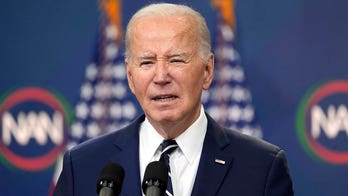If Congressional approval ratings get any lower, lawmakers might think about passing a bailout package for themselves. Four in five voters disapprove of the job Congress is doing — and only 14 percent assign positive job ratings. These results speak volumes about the continued restiveness of the American electorate.
As has been the case in past surveys, the voting public's ire is not reserved for one party. When asked who they want to win this year's congressional elections, just about equal numbers choose Democrats (36 percent) as Republicans (35 percent) — but almost as many (29 percent) say they "don't know" or don't want either party to win.
Among key independent voters, 34 percent don't want either party to win, while another 32 percent are unsure.
Along the same lines, a majority of voters (56 percent) say that the new arrival on the political scene — the Tea Party movement — is to some degree qualitatively different from the Republican Party. Some 16 percent of voters think there is "a lot" of difference between the Republican Party and the Tea Party movement, and another 40 percent think there is "some" difference.
About two-thirds of Republicans (65 percent) think there is at least some difference between their party and the Tea Party movement, while 57 percent of independents think so.
Moreover, when asked to describe their own voting mood, a 36-percent plurality says all incumbents should be thrown out this year, with about equal numbers targeting Democrats (10 percent) as Republicans (9 percent). About one voter in four (26 percent) thinks we should stick with those currently in office. Not surprisingly, Democrats are the most likely to take this latter view (39 percent).
The desire to "clean house" is in part due to the view that elected officials in Washington are doing more harm than good. Fully 77 percent of voters think lawmakers "add to the country's problems" rather than "solve the country's problems" (16 percent).
And, the blame for this malfeasance is laid squarely at the feet of elected officials (53 percent) and not voters themselves (26 percent).
Another clear indicator of what is motivating this revolt against incumbency is a considerably libertarian strain in the electorate. When asked to choose between "bigger government" (providing more services) and "smaller government" (providing fewer services), the more limited course is the winner by a 58 percent to 35 percent margin. And the critical bloc of independent voters is even more likely to opt for leaner government (70 percent).
Opinion Dynamics Corp. conducted the national telephone poll for Fox News among 900 registered voters from Feb. 23 to Feb. 24, 2010. For the total sample, the poll has a margin of sampling error of plus or minus 3 percentage points.
Ernie Paicopolos is a principal at Opinion Dynamics Corporation.




